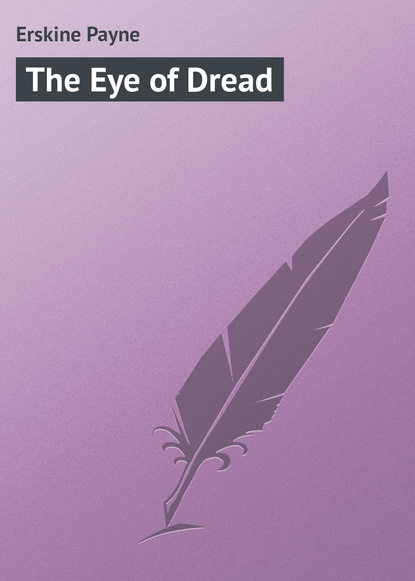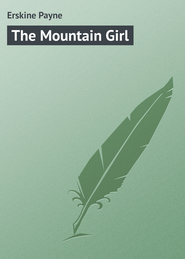По всем вопросам обращайтесь на: info@litportal.ru
(©) 2003-2024.
✖
The Eye of Dread
Настройки чтения
Размер шрифта
Высота строк
Поля
Larry Kildene breakfasted and worked about the cabin and the shed half the day before he began to wonder at the young man’s absence. He fell to grumbling that Harry had not fed and groomed his horse, and did the work himself. Noon came, and Amalia looked in his face anxiously as he entered and Harry not with him.
“How is it that Mr. ’Arry have not arrive all this day?”
“Oh, he’s mooning somewhere. Off on a tramp I suppose.”
“Has he then his gun? No?”
“No, but he’s been about. He cleared away all the snow, and I saw he had been over to the fall.” Amalia turned pale as the shrewd old man’s eyes rested on her. “He came back early, though, for I saw footprints both ways.”
“I hope he comes soon, for we have the good soup to-day, of the kind Mr. ’Arry so well likes.”
But he did not come soon, and it was with much misgiving that Larry set out to search for him. Finding no trails leading anywhere except the twice trodden one to the fall, he naturally turned into the mine and followed along the path, torch in hand, hallooing jovially as he went, but his voice only returned to him, reverberating hollowly. Then, remembering the ledge where they had last worked, and how he had meant to put in props before cutting away any more, he ran forward, certain of calamity, and found his young friend lying where he had fallen, the blood still oozing from a cut above the temple, where it had clotted.
For a moment Larry stood aghast, thinking him dead, but quickly seeing the fresh blood, he lifted the limp body and bound up the wound, and then Harry opened his eyes and smiled in Larry’s face. The big man in his joy could do nothing but storm and scold.
“Didn’t I tell ye to do no more here until we’d the props in? I’m thinking you’re a fool, and that’s what you are. If I didn’t tell ye we needed them here, you could have seen it for yourself–and here you’ve cut away all underneath. What did you do it for? I say!” Tenderly he gathered Harry in his arms and lifted him from the débris and loosened rock. “Now! Are you hurt anywhere else? Don’t try to stand. Bear on me. I say, bear on me.”
“Oh, put me down and let me walk. I’m not hurt. Just a cut. How long have you been here?”
“Walk! I say! Yes, walk! Put your arm here, across my shoulder, so. You can walk as well as a week-old baby. You’ve lost blood enough to kill a man.” So Larry carried him in spite of himself, and laid him in his bunk. There he stood, panting, and looking down on him. “You’re heavier by a few pounds than when I toted you down that trail last fall.”
“This is all foolishness. I could have made it myself–on foot,” said Harry, ungratefully, but he smiled up in the older man’s face a compensating smile.
“Oh, yes. You can lie there and grin now. And you’ll continue to lie there until I let you up. It’s no more lessons with Amalia and no more violin and poetry for you, for one while, young man.”
“Thank God. It will help me over the time until the trail is open.” Larry stood staring foolishly on the drawn face and quivering, sensitive lips.
“You’re hungry, that’s what you are,” he said conclusively.
“Guess I am. I’m wretchedly sorry to make you all this trouble, but–she mustn’t come in here–you’ll bring me a bite to eat–yes, I’m hungry. That’s what ails me.” He drew a grimy hand across his eyes and felt the bandage. “Why–you’ve done me up! I must have had quite a cut.”
“I’ll wash your face and get your coat off, and your boots, and make you fit to look at, and then–”
“I don’t want to see her–or her mother–either. I’m just–I’m a bit faint–I’ll eat if–you’ll fetch me a bite.”
Quickly Larry removed his outer clothing and mended the fire and then left him carefully wrapped in blankets and settled in his bunk. When he returned, he found him light-headed and moaning and talking incoherently. Only a few words could he understand, and these remained in his memory.
“When I’m dead–when I’m dead, I say.” And then, “Not yet. I can’t tell him yet.–I can’t tell him the truth. It’s too cruel.” And again the refrain: “When I’m dead–when I’m dead.” But when Larry bent over him and spoke, Harry looked sanely in his eyes and smiled again.
“Ah, that’s good,” he said, sipping the soup. “I’ll be myself again to-morrow, and save you all this trouble. You know I must have accomplished a good deal, to break off that ledge, and the gold fairly leaped out on me as I worked.”
“Did you see it?”
“No, but I knew it–I felt it. Shake my clothes and see if they aren’t full of it.”
“Was that what put you in such a frenzy and made a fool of you?”
“Yes–no–no. It–it–wasn’t that.”
“You know you were a fool, don’t you?”
“If telling me of it makes me know it–yes.”
“Eat a little more. Here are beans and venison. You must eat to make up the loss. Why, man, I found you in a pool of blood.”
“Oh, I’ll make it up. I’ll make it up all too soon. I’m not to die so easily.”
“You’ll not make it up as soon as you think, young man. You may lose a quart of blood in a minute, but it takes weeks to get it again,” and Harry King found his friend was right.
That was the last snow of winter, as Larry had predicted, and when Harry crawled out in the sun, the earth smelled of spring, and the waterfall thundered in its downward plunge, augmented by the melting snows of the still higher mountains. The noise of it was ever in their ears, and the sound seemed fraught with a buoyant impulse and inspiration–the whirl and rush of a tremendous force, giving a sense of superhuman power. Even after he was really able to walk about and help himself, Harry would not allow himself to see Amalia. He forbade Larry to tell them how much he was improved, and still taxed his friend to bring him up his meals, and sit by him, telling him the tales of his life.
“I’ll wait on you here no longer, boy,” said Larry, at last. “What in life are you hiding in this shed for? The women think it strange of you–the mother does, anyway,–you may never quite know what her daughter thinks unless she wishes you to know, but I’m sure she thinks strange of you. She ought to.”
“I know. I’m perfectly well and strong. The trail’s open now, and I’ll go–I’ll go back–where I came from. You’ve been good to me–I can’t say any more–now.”
“Smoke a pipe, lad, smoke a pipe.”
Harry took a pipe and laughed. “You’re better than any pipe, but I’ll smoke it, and I’ll go down, yes, I must, and bid them good-by.”
“And will you have nothing to tell me, lad, before you go?”
“Not yet. After I’ve made my peace with the world–with the law–I’ll have a letter sent you–telling all I know. You’ll forgive me. You see, when I look back–I wish to see your face–as I see it now–not–not changed towards me.”
“My face is not one to change toward you–you who have repented whatever you’ve done that’s wrong.”
That evening Harry King went down to the cabin and sat with his three friends and ate with them, and told them he was to depart on the morrow. They chatted and laughed and put restraint away from them, and all walked together to watch the sunset from a crag above the cabin. As they returned Madam Manovska walked at Harry’s side, and as she bade him good night she said in her broken English:–
“You think not to return–no? But I say to you–in my soul I know it–yet will you return–we no more to be here–perhaps–but you–yes. You will return.”
They stood a moment before the cabin, and the firelight streamed through the open door and fell on Amalia’s face. Harry took the mother’s hand as he parted from them, but he looked in Amalia’s eyes.
In the morning he appeared with his kit strapped on his back equipped for walking. The women protested that he should not go thus, but he said he could not take Goldbug and leave him below. “He is yours, Amalia. Don’t beat him. He’s a good horse–he saved my life–or tried to.”
“You know well it is my custom to beat animals. It is better you take him, or I beat him severely.”
“I know it. But you see, I can’t take him. Ride him for me, and–don’t let him forget me. Good-by!”
He waved his hand and walked lightly away, and all stood in the doorway watching him. At the top of a slight rise he turned again and waved his hand, and was lost to their sight. Then Larry went back to the shed and sat by the fire and smoked a lonely pipe, and the mother began busily to weave at her lace in the cabin, closing the door, for the morning air was chilly, and Amalia–for a moment she stood at the cabin door, her hand pressed to her heart, her head bowed as if in despair. Then she entered the cabin, caught up her silken shawl, and went out.
Throwing the shawl over her head she ran along the trail Harry had taken, until she was out of breath, then she paused, and looked back, hesitating, quivering. Should she go on? Should she return?
“I will go but a little–little way. Maybe he stops a moment, if only to–to–think a little,” and she went on, hurrying, then moving more slowly. She thought she might at least catch one more fleeting glimpse of him as he turned the bend in the trail, but she did not. “Ah, he is so quickly gone!” she sighed, but still walked on.
Yes, so quickly gone, but he had stopped as she thought, to think a little, beyond the bend, there where he had waited the long night in the snow for Larry Kildene, there where he had sat like Elijah of old, despairing, under the juniper tree. He felt weary and old and worn. He thought his youth had gone from him forever, but what matter? What was youth without hope? Youth, love, life, all were to be relinquished. He closed his eyes to the wonder of the hills and the beauty before him, yet he knew they were there with their marvelous appeal, and he sat with bowed head.
“’Arry! ’Arry King!” He raised his head, and there before him were all that he had relinquished–youth, love, life.
He ran and caught her to him, as one who is drowning catches at life.






